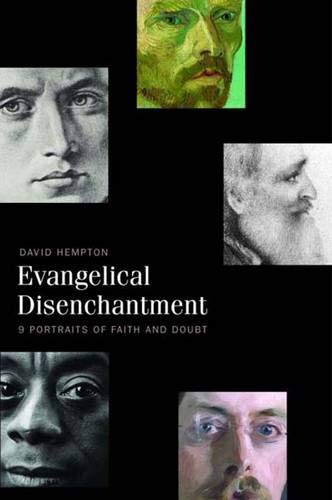
Nine Portraits of Faith and Doubt
A renowned historian of the popular appeal of evangelicalism (especially Methodism) in the 18th and 19th centuries and the dean of Harvard Divinity School, David Hempton turns in this book from social history to biography. He profiles nine prominent creative artists, social reformers, and public intellectuals who left the evangelical fold in the 19th and 20th centuries. Noting that “nothing reveals as much about the inner workings of institutions as their complaint departments,” he calls his subjects’ narratives “referrals to the complaint department of the evangelical tradition.”
Hempton’s complainants are the novelists and essayists George Eliot and James Baldwin, the memoirist Edmund Gosse, the public intellectual Frances W. Newman (brother of John Henry), the painter Vincent Van Gogh, and the social reformers Sarah Grimke, Theodore Dwight Weld, Frances Willard, and Elizabeth Cady Stanton. Hempton tries as much as possible to let them convey their complaints in their own words and works. He wants not to moralize on their journeys of faith and doubt, but to understand “how their negotiations of faith informed their private and public lives.”
That he draws their disillusionment sympathetically is not to say that he endorses it. He is careful to note that his subjects are decidedly in the minority within evangelicalism, and he has no intention of promoting their critiques at the expense of the manifold reasons why the vast majority of evangelicals “have lived and died contentedly within their faith tradition.” He seeks to understand, not to judge or to prescribe—a rather welcome attitude in a political and religious climate that has grown only more acidic since the book first appeared, in 2008.
Reviews and endorsements of the publication include:
A beautifully written and artfully constructed book that draws intriguing conclusions about the nature of evangelical Protestantism.
—Mark Noll
This book charts new territory by close examination of a series of case studies of people previously well-known but not previously compared. Hempton succeeds wonderfully well in producing compelling mini-biographies.
—Thomas Kidd, author of The Great Awakening: The Roots of Evangelical Christianity in Colonial America
Hempton tells these stories with excellent skill, insight, and fair-mindedness. These accounts of loss of faith of prominent figures illuminate not only their personal struggles but also some fascinating relationships between evangelicalism and mainstream public culture, especially in Great Britain and the United States.
—George Marsden, author of Fundamentalism and American Culture
For more information on the publication, click here.
